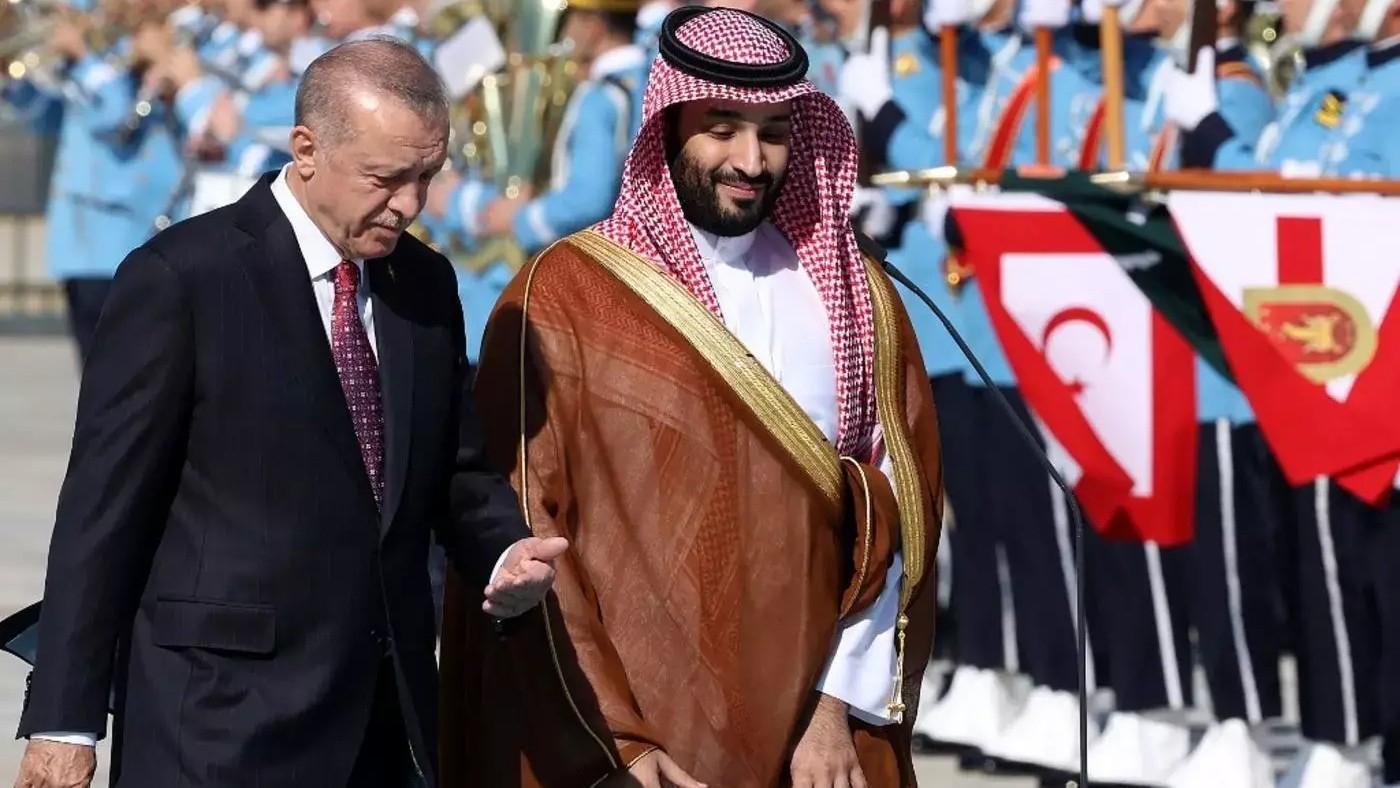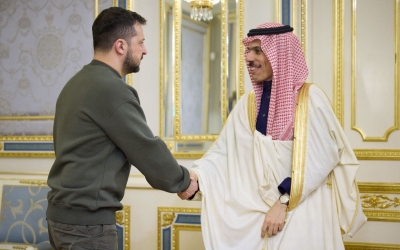Arab youth look to Turkey and China as US, UK approval dips: Survey

More than two-thirds of young Arabs in the Middle East see Turkey and China as a "strong or somewhat of a strong ally" for the region, research shows.
As a multipolar world increasingly takes shape, new allies for the region are emerging, according to the 15th edition of the Arab Youth Survey published Thursday by global communications agency Asda’a Bcw, which is based in the United Arab Emirates (UAE).
More than 82 percent of Arab youth aged 18-24 named Turkey “a strong ally or somewhat of an ally” followed by China at 80 percent.
The United States did not fare as well and was ranked seventh, with 72 percent of Arab youth saying it was a strong ally or somewhat of an ally, below Germany at 78 percent, France at 74 percent and India at 73 percent.
In a separate category of alliances within the Arab world, Qatar emerged on top in the eyes of Arab youth, with 90 percent considering it a strong ally or somewhat of an ally.
New MEE newsletter: Jerusalem Dispatch
Sign up to get the latest insights and analysis on Israel-Palestine, alongside Turkey Unpacked and other MEE newsletters
This was followed by Egypt at 89 percent, the UAE at 88 percent, and Saudi Arabia at 86 percent.
The survey spoke to 3,600 youth in face-to-face interviews across 53 cities across the Arab world. Asda’a Bcw is also a public relations company that uses such data to inform and promote regional government and business agendas, including the UAE.
Enhanced Arab pride
The Fifa World Cup 2022 hosted by Qatar seemed to have also buoyed the country’s reputation and more broadly galvanised the Arab world with “enhanced Arab pride”, said the authors of the report.
Despite the emergence of regional stakeholders, Arab youth still see the US as wielding the most power in the region.
A third of respondents said the US wields the most influence in the region, followed by the United Arab Emirates at 11 percent, and Saudi Arabia and Israel tied for third place with 10 percent.
While many believed the US held the most influence, which did not translate into a desire for closer ties with Washington, almost two-thirds of respondents hoped that the US would continue to disengage from Middle East affairs.
Despite the US-brokered Abraham Accords in 2020, which established ties between the UAE, Bahrain, Morocco and Sudan and Israel - 87 percent of Arabs surveyed see the country as a “strong adversary or somewhat of an adversary”.
There were some peculiar outliers according to the research.
Three-quarters of Emirati and Egyptian youth “strongly support or somewhat support” closer ties with Israel, according to the research.
Research published last month suggests that the picture regarding the Abraham Accords is more complex.
According to the latest surveys by the Washington Institute, a US-based think tank, only 27 percent of respondents in the UAE and 20 percent in Bahrain viewed the accords as positive for the region.
That compares with 47 percent and 45 percent in 2020 when the accords were billed as part of a process that may encourage Israel to mediate its conflict with the Palestinians.
In Saudi Arabia, which has not normalised relations with Israel, support for the accords also fell by half to 20 percent.
Commenting on the report, Faisal al-Yafai, an analyst for the Arab Youth Survey, called the findings intriguing.
“The US, the UK and France are trending downwards,” in terms of how they are being perceived in the region, said Yafai, whereas Turkey and China are increasingly trending upwards.
This reflected how embedded "a new, global multipolarity” is becoming, added Yafai.
Migration and economic woes
The survey found there is increasing frustration with the national government on education, jobs, and inflation. Growing swathes of Arab youth feel estranged from their government and the decision-making process.
More than half of Arab youth in North Africa and the Levant region are looking to leave their countries for a better life. A lack of jobs, increasing economic woes, and conflict were the main reasons cited for considering immigration.
Even in the wealthy Gulf countries, a third of young people were considering moving abroad.
Despite the relatively higher economic dynamism of the Gulf, “job seekers look primarily at Canada, the United States, Britain, Germany, and France”, said James Dorsey, an analyst for the report.
“The stark reality behind these figures is defined by degrees of confidence in government policies,” said Dorsey.
“Over the last five years, trust that government policies will enable youth to fulfil their dreams has been consistently high in the GCC and low in the rest of the Arab world, much of which has witnessed social unrest over the past decade,” he said.
With more than two-thirds of Arab youth believing that the economy is going in the wrong direction, Dorsey warned that regional governments need to redouble efforts to stamp out pessimism or potentially face political upheaval.
Middle East Eye delivers independent and unrivalled coverage and analysis of the Middle East, North Africa and beyond. To learn more about republishing this content and the associated fees, please fill out this form. More about MEE can be found here.





